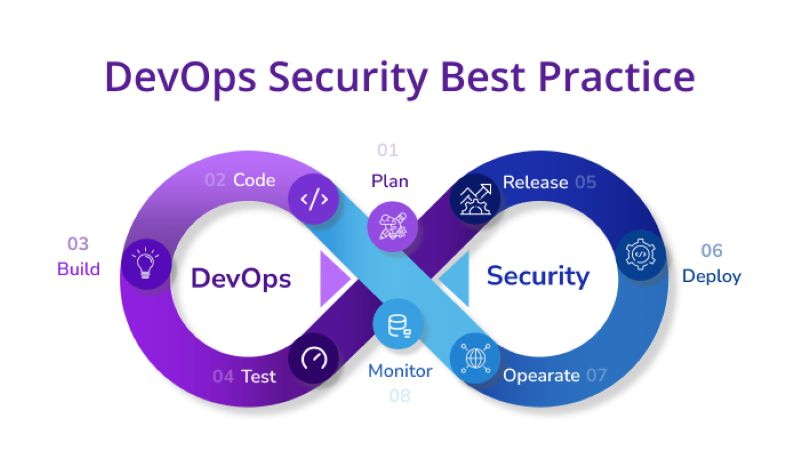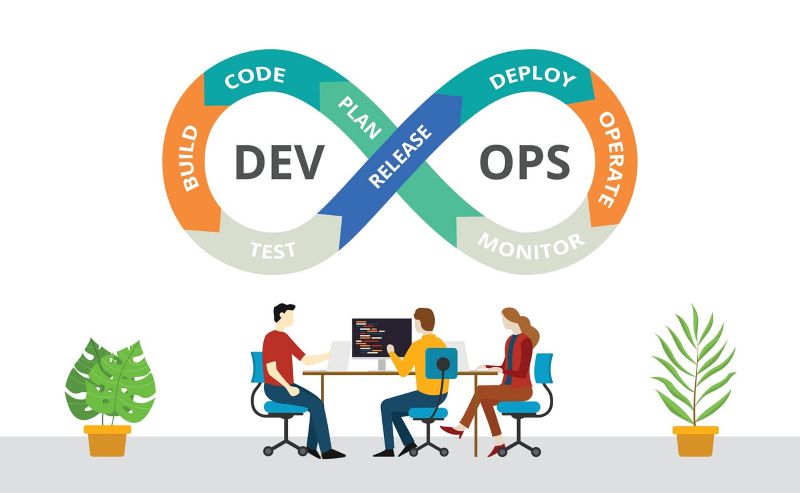DevOps is a methodology that combines development (Dev) and operations (Ops) to deliver applications and services faster and more reliably. In the banking industry, DevOps is used to improve performance, optimize processes, and create a culture of continuous improvement.
DevOps promotes collaboration between development and operations teams, helping to remove barriers and increase delivery speed. This leads to cost savings, quality improvements, and increased customer satisfaction.
So, What are the benefits of DevOps in banking? Let’s find out right in this article!
The benefits of DevOps in banking
In the context of fierce competition and rapid growth, the banking industry today faces great pressure to ensure its success.
Using the DevOps methodology is one way to help banks maintain their leading position. DevOps is a methodology that combines development and operations to create a more efficient and coherent software development process.
By implementing DevOps, banks can achieve many benefits, including:
Reduce Time to Market
DevOps helps the banking industry to develop and deploy new products quickly. This is because DevOps focuses on automating development and deployment processes. Automation helps to eliminate manual tasks and wasted time, allowing development and operations teams to focus on more important tasks.
Increased security
In the increasingly complex and risky financial landscape, cybersecurity is a major concern for banks. DevOps, a software development approach that focuses on collaboration between development and operations, can help banks build more secure software.
Integrating security from the start helps to reduce security risks, as security vulnerabilities can be detected and fixed earlier. DevOps can also help automate security testing and continuous monitoring to improve the security posture of products.

Improved collaboration
DevOps is not just a software development methodology, but also a culture of collaboration in banking. By breaking down silos and enabling increased communication, DevOps fosters close collaboration between development and operations teams.
As a result, they can work together more effectively to solve problems and deliver the best possible products.
This collaboration not only facilitates a positive work environment, but also helps to reduce errors and improve overall quality.

Scalability
A software application must be constantly improved to meet the ever-increasing needs of users. Scalability is essential for banks, as they need to be able to meet the needs of customers in real time.
DevOps can help banks handle increased demand in a more flexible way. By automating the deployment process and using cloud tools and platforms, DevOps can help banks deploy new versions of software and add resources as needed. This allows banks to meet the needs of customers quickly and efficiently.
Increased Customer Satisfaction
The shorter the development cycle, the more time banks have to collect customer feedback and make necessary changes.
For example, a bank could use DevOps to automate development and deployment processes. This could help the bank reduce the development cycle for new products and services from several months to just a few weeks or days. This would allow the bank to collect feedback from customers earlier and make necessary changes faster.
Conclusion
The future of banking is DevOps. By embracing this transformative approach, banks can unlock a new era of agility, efficiency, and customer-centricity, solidifying their position in the ever-evolving financial landscape.
Remember, DevOps is not just a technological solution, it’s a journey towards a collaborative, adaptable, and innovative banking culture.
Table Of Content


